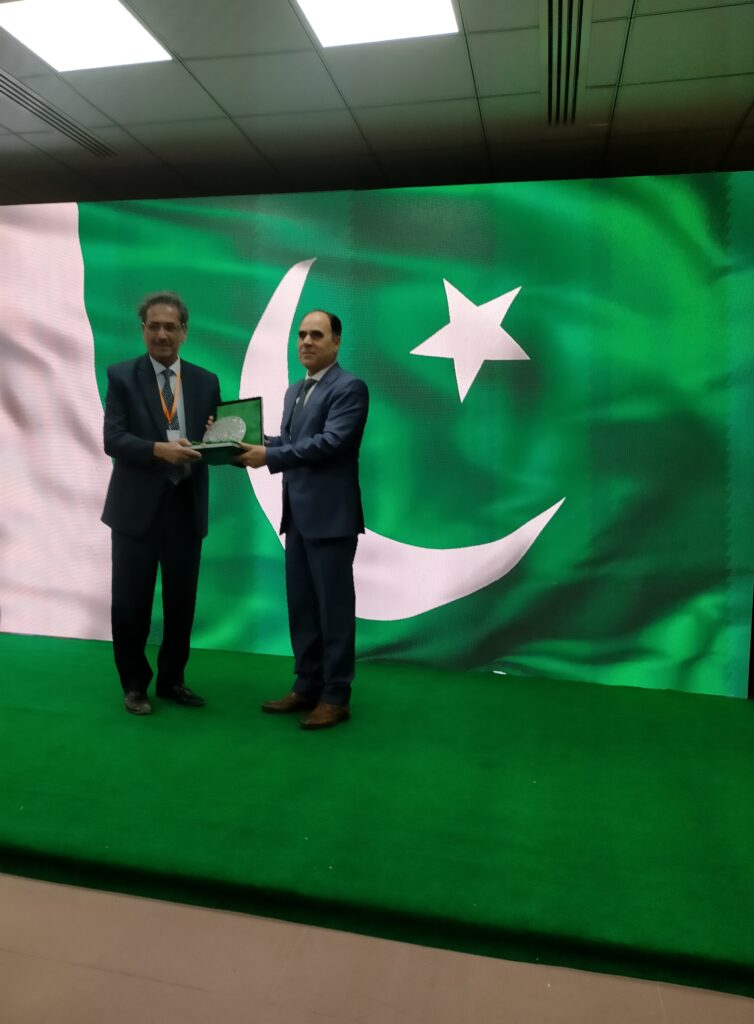Official visit highlights sector potential
The Islamic Republic of Pakistan, currently an IOC observer country, has officially expressed its interest in adhering to the International Agreement on Olive Oil and Table Olives, signalling its intent to become a full member of the International Olive Council (IOC). The accession process is currently under way, marking a significant step for the development of the olive oil sector in the country.
In this context, an IOC delegation composed of Abderraouf Laajimi, Deputy Executive Director for Operational Affairs, and María Juárez, Head of the Economic Affairs and Promotion Unit, undertook an official visit to Pakistan from 23 to 28 November 2025. The mission was organised at the invitation of the Minister for National Food Security and Research, with the support of the Trade Development Authority of Pakistan (TDAP).
IOC Estimates: Pakistan’s Olive Sector in Numbers
According to the IOC’s own estimates, olive oil consumption in Pakistan has seen a significant upward trend, with total imports growing steadily over recent years. The European Union remains Pakistan’s main trading partner, although a downward correction in import volumes has been observed in the 2022/23 and 2023/24 crop years. IOC estimates for the 2024/2025 crop year in Pakistan point at olive oil production levels reaching roughly 1,500 tonnes, imports at 3,500 tonnes and a consumption level of approximately 5,000 tonnes. The volume and value of EU olive oil exports to Pakistan, tracked yearly, demonstrate the country’s increasing integration into global olive oil trade flows.
On-the-Ground Engagement and Bilateral Meetings
A high-level meeting with the Minister of National Food Security and Research provided an opportunity to review the state of progress in Pakistan’s accession to the IOC, and to explore the areas in which the Organisation could provide technical support and cooperation. Minister Rana Tanveer Hussain recently participated in the IOC’s celebration of World Olive Day in Córdoba, where Pakistan joined other IOC member and observer countries in expressing their support for the Córdoba Declaration, a document that reinforces international cooperation in promoting the sustainability, quality, and global recognition of the olive sector.
The mission included field visits to small-scale production units, olive-growing areas, and the Centre of Excellence for Olive Research and Training (CEFORT). These visits offered a comprehensive view of the national sector, including production, processing, research, extension services and innovation.

A Programme of High-Level Engagement and Sector Insights
The IOC delegation took part in the third edition of the FoodAg International Fair in Karachi, where it delivered two presentations during the conference’s side events:

- “The Olive Sector: An International Perspective” (Abderraouf Laajimi) – highlighting global trends and future outlooks for the sector, while underlining the opportunities available to Pakistan as a future IOC member;
- “Pakistan in the Path to Joining the International Olive Oil Scene: Towards IOC Membership” (María Juárez) – outlining the benefits of IOC accession and the support mechanisms available to member countries.
The audience was composed of sector professionals, decision-makers, development experts and other stakeholders, reflecting the growing national interest in developing the olive oil value chain.
In parallel, the delegation visited olive oil producers’ stands to gain a better understanding of the sector’s current level of technical and quality control, and to assess Pakistan’s preparedness to adopt and apply IOC trade standards and analysis methods.
Pakistan’s manifested interest in joining the IOC highlights the growing strategic importance of the olive sector, the value of multilateral cooperation, and the central role of the IOC in advancing quality standards, scientific collaboration and sustainability. It also reflects a broader understanding of the benefits of olive oil — not only as a driver of rural development and economic diversification, but also as a cornerstone of healthy diets and a crop well-adapted to the challenges of climate resilience and environmental stewardship.








